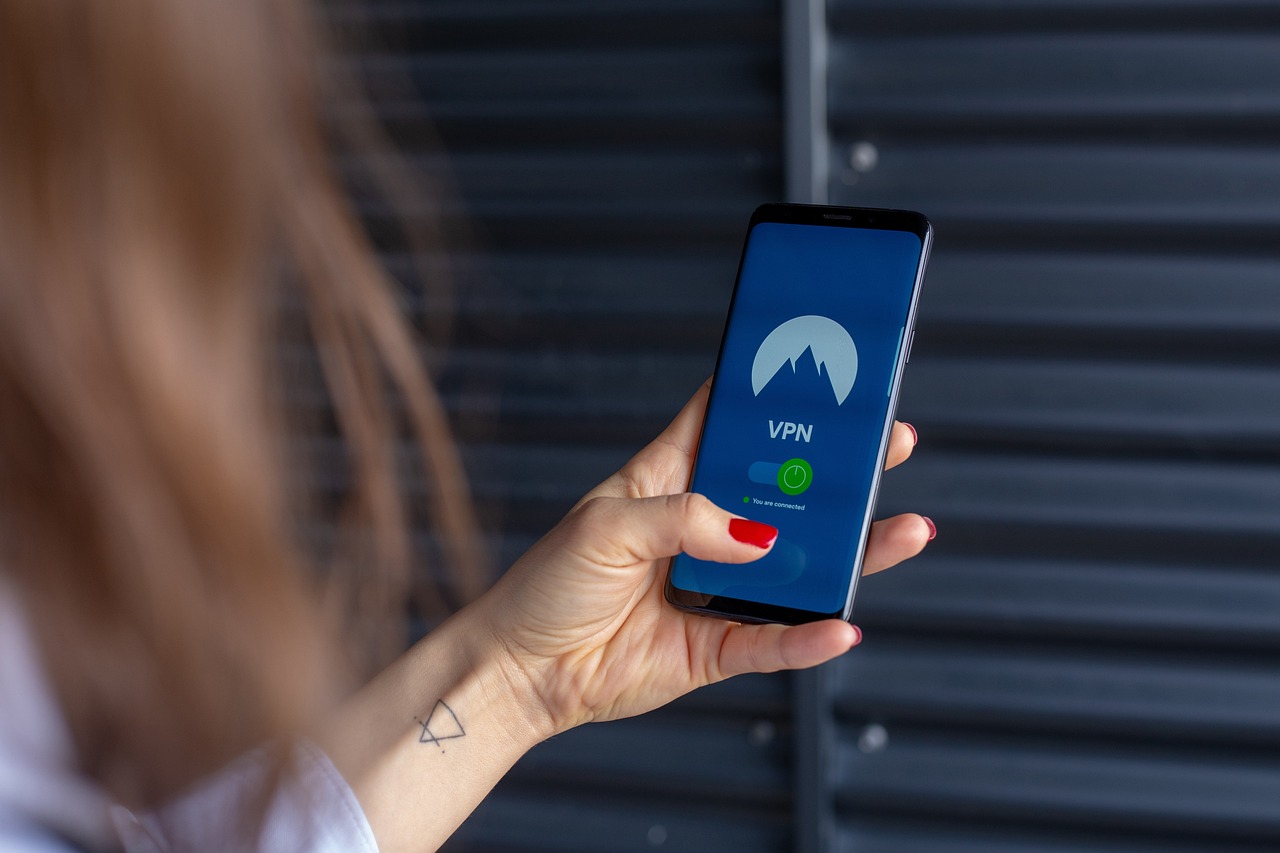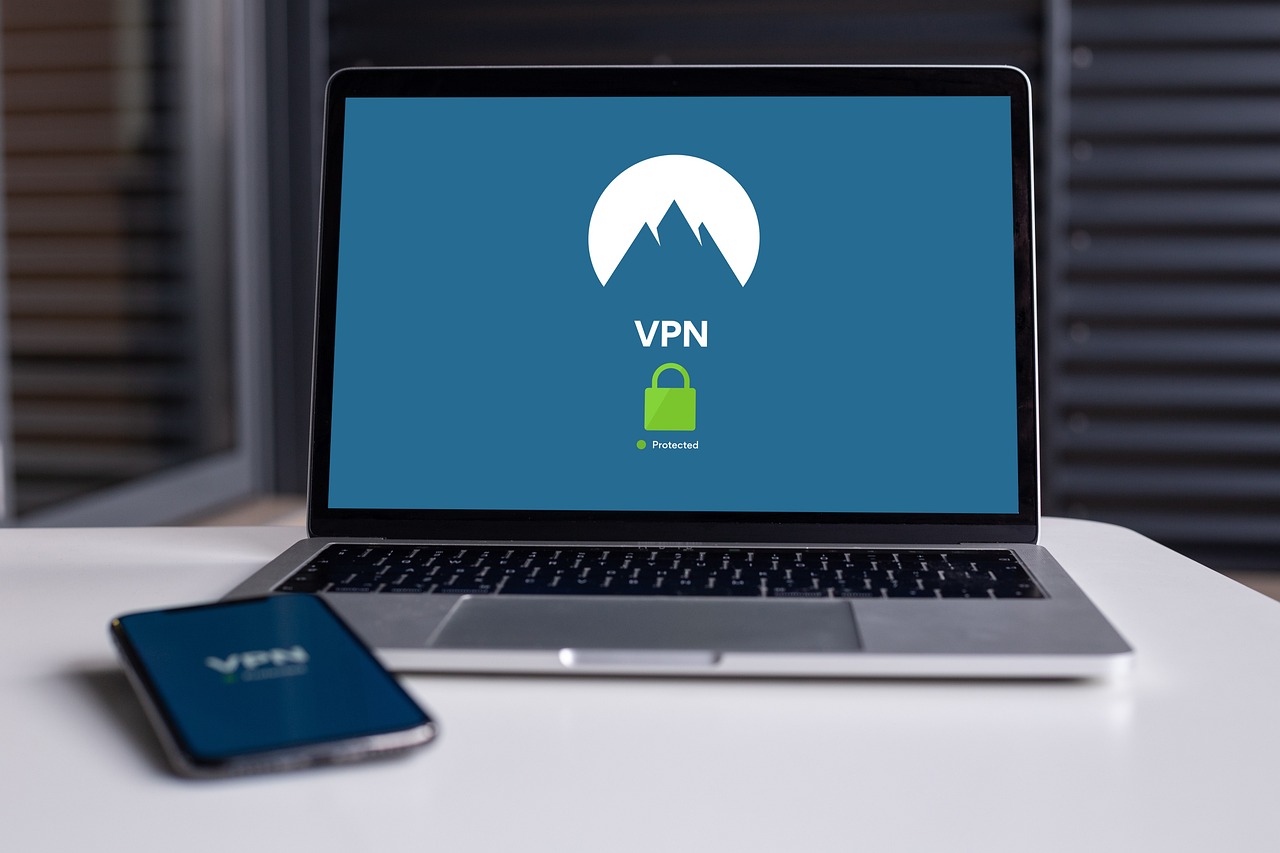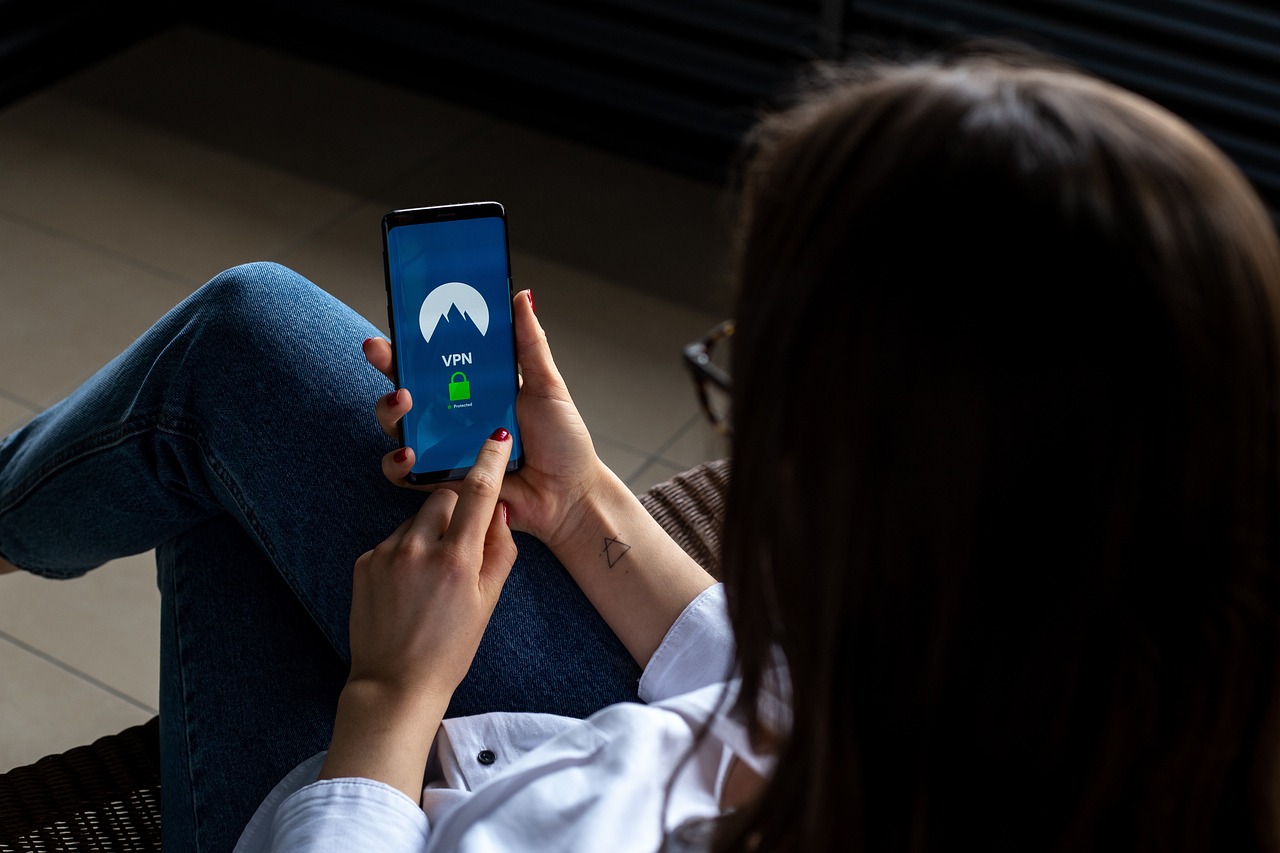Cyber Threats in E-Gaming - How to Stay Safe
In today's digital age, e-gaming has exploded in popularity, drawing millions of players into a vibrant world filled with competition, camaraderie, and excitement. However, as the gaming community grows, so do the cyber threats that lurk in the shadows. Whether you're a casual player or a hardcore gamer, understanding these threats is crucial for protecting yourself and your gaming experience. This article explores various cyber threats faced by e-gaming enthusiasts and offers essential tips for maintaining security while enjoying online gaming experiences. So, grab your controller and let’s dive into the world of e-gaming safety!
Cyber threats in e-gaming encompass a range of malicious activities that can disrupt your gaming experience and compromise your personal information. From hacking to phishing and malware, these threats can take many forms. Imagine logging into your favorite game, only to find your account has been hacked, or receiving a deceptive email that tricks you into revealing your login credentials. The potential impact on players can be severe, leading to lost accounts, stolen identities, and even financial loss. By understanding these threats, gamers can better prepare themselves to navigate the digital landscape safely.
Different types of cyber attacks target e-gaming platforms, each with its own methods and consequences. Among the most notorious are DDoS attacks, which overwhelm servers and disrupt gameplay for everyone involved, leaving players frustrated and unable to connect. Then there's account theft, where malicious actors steal your gaming credentials, granting them access to your hard-earned achievements and in-game purchases. Lastly, in-game fraud can occur, where players are tricked into giving away items or currency to scammers posing as fellow gamers. Understanding these attacks is the first step in safeguarding your gaming experience.
Phishing scams are prevalent in the gaming community and can be incredibly deceptive. Attackers often use fake emails or messages that appear to come from legitimate gaming companies, tricking players into revealing personal information or login credentials. Picture this: you receive an email claiming there’s a problem with your account, urging you to click a link to resolve the issue. If you fall for it, you might unwittingly hand over your account details to a cybercriminal. Recognizing these scams is vital to protecting yourself in the gaming world.
Recognizing phishing attempts is crucial for gamers. Here are some common signs of phishing to watch out for:
- Suspicious URLs: Always check the link before clicking. Phishing sites often have misspelled or strange domain names.
- Generic Greetings: Legitimate companies usually address you by your name, while phishing emails often use generic terms like "Dear Player."
- Urgent Language: Scammers often create a sense of urgency to pressure you into acting quickly without thinking.
Implementing preventive measures can significantly reduce the risk of phishing. Here are some practical tips for safeguarding your personal information:
- Verify Sources: Always verify the source of emails or messages before clicking any links.
- Use Official Websites: Instead of clicking on links, type the website address directly into your browser.
- Educate Yourself: Stay informed about the latest phishing tactics and scams affecting the gaming community.
Malware poses a significant threat to e-gamers. This category includes various types of malicious software, such as keyloggers that capture your keystrokes to steal passwords and ransomware that locks your files until you pay a ransom. Imagine losing access to your favorite games and files because a malicious program has taken control of your device. The consequences for players can be devastating, leading to loss of data, compromised accounts, and significant financial repercussions. Understanding the risks associated with malware is essential for any gamer looking to protect their digital life.
Adopting best practices is essential for maintaining online safety in gaming. Here are some actionable tips to enhance your security:
- Use Strong Passwords: Create unique passwords for each of your gaming accounts to prevent unauthorized access.
- Enable Two-Factor Authentication: This adds an extra layer of security by requiring a second form of verification.
Creating strong passwords is a fundamental step in protecting your gaming accounts. A strong password typically includes a mix of uppercase and lowercase letters, numbers, and special characters. For example, instead of using "password123," consider something like "G@m3L0v3r!2023." It’s not only harder to guess but also more secure. Additionally, using a password manager can help you generate and store complex passwords, making it easier to manage your accounts without the risk of forgetting them.
Two-factor authentication (2FA) adds an extra layer of security to your gaming accounts. It works by requiring a second form of verification, such as a code sent to your mobile device, in addition to your password. This means that even if someone manages to steal your password, they won't be able to access your account without that second factor. Enabling 2FA is a simple yet effective way to safeguard your accounts against unauthorized access, making it a must for every gamer.
Staying informed about the latest cyber threats is crucial for gamers. The digital landscape is constantly evolving, and new threats can emerge at any time. Following security news and updates from gaming platforms can help you remain vigilant against emerging threats. Consider subscribing to gaming forums or security blogs, where you can learn about the latest scams and how to protect yourself. Remember, knowledge is power, and being informed is your best defense against cyber threats in e-gaming.
Q: What should I do if I think my account has been hacked?
A: Immediately change your password and enable two-factor authentication. Contact the game's support team for assistance as well.
Q: How can I tell if an email is a phishing attempt?
A: Look for suspicious URLs, generic greetings, and urgent language. Always verify the source before clicking any links.
Q: Is it safe to use public Wi-Fi for online gaming?
A: Public Wi-Fi can be risky. If you must use it, consider using a VPN to secure your connection.

Understanding Cyber Threats
In the vibrant world of e-gaming, where players immerse themselves in thrilling adventures and competitive battles, there lurks a darker side: cyber threats. These threats encompass a range of malicious activities that can jeopardize not just your gaming experience but also your personal information. Have you ever thought about how safe your online gaming environment really is? Cyber threats can take many forms, but understanding them is the first step in protecting yourself.
One of the most common threats players face is hacking. Hackers often target gaming accounts to steal valuable in-game assets or personal information. Imagine pouring hours into leveling up your character, only to find that someone else has taken over your account and all your hard work has vanished! This is a reality for many gamers who fall victim to such attacks.
Another prevalent threat is phishing. In this scenario, attackers use deceptive emails or messages that appear to be from legitimate gaming platforms. They lure players into clicking on malicious links or providing sensitive information, like passwords. It’s a bit like a wolf in sheep's clothing; everything seems fine until it’s too late. The consequences of falling for a phishing scam can be devastating, leading to account theft and even financial loss.
Then there’s malware, which comes in various forms, including viruses, worms, and spyware. Malware can be hidden in downloads or links that seem harmless. For instance, if you download a mod for your favorite game from an untrustworthy source, you might unknowingly install a keylogger that captures your keystrokes, compromising your login credentials. The potential impact of malware on players can be severe, leading to loss of data, identity theft, and damaged devices.
To give you a clearer picture of these threats, here’s a quick overview:
| Type of Threat | Description | Potential Impact |
|---|---|---|
| Hacking | Unauthorized access to gaming accounts | Account theft, loss of in-game assets |
| Phishing | Deceptive messages tricking users into revealing info | Identity theft, financial loss |
| Malware | Malicious software that can harm devices | Data loss, device malfunction |
Being aware of these cyber threats is crucial for every gamer. Just as you wouldn’t venture into a dark alley in the real world without a flashlight, you shouldn’t navigate the online gaming landscape without understanding the risks. By recognizing the types of threats that exist, you can better equip yourself to handle them and enjoy your gaming experience without fear.

Types of Cyber Attacks
When diving into the world of e-gaming, it's crucial to understand the various types of cyber attacks that can disrupt your gaming experience and compromise your security. The digital playground, while exciting, can also be a minefield of threats waiting to ensnare unsuspecting players. Let's explore some of the most common cyber attacks that target e-gaming platforms, including DDoS attacks, account theft, and in-game fraud. Each of these threats has its own unique way of wreaking havoc, and knowing about them can help you stay one step ahead.
One of the most notorious types of attacks is the DDoS attack (Distributed Denial of Service). Imagine you're in the middle of an intense raid with your friends, and suddenly, the game lags or crashes. This could be the result of a DDoS attack, where attackers overwhelm the gaming server with a flood of traffic, causing it to become unresponsive. The goal here is to disrupt gameplay and frustrate players, often leading to loss of progress and a significant dip in user experience. It's like trying to enjoy a concert while a crowd of people blocks your view; all you want is to enjoy the show, but chaos reigns instead.
Another prevalent threat is account theft. This can happen in various ways, such as through phishing scams or by exploiting weak passwords. Once attackers gain access to your account, they can steal your personal information, in-game currency, or even your entire gaming library. Just imagine waking up one day to find that all your hard-earned achievements have vanished because someone else decided to play your character. It’s a nightmare scenario that can leave players feeling violated and powerless.
Then there's in-game fraud, which can take many forms, such as scams involving fake items or services. For example, players might be lured into purchasing a rare item from a seemingly trustworthy source, only to find out that it was a complete hoax. This type of fraud can not only lead to financial loss but can also erode trust within the gaming community. Players need to be vigilant, as the allure of quick rewards can sometimes cloud judgment, making it easier for fraudsters to strike.
In summary, the digital realm of e-gaming is not just about fun and games; it’s also a battleground for cyber threats. Understanding these types of cyber attacks is the first step in fortifying your defenses. By staying informed and adopting proactive measures, you can protect yourself and continue to enjoy the thrilling adventures that e-gaming has to offer.

Phishing Scams
Phishing scams have become a notorious threat within the e-gaming community, and it's essential for players to remain vigilant. These scams often take the form of deceptive emails, messages, or even fake websites that mimic legitimate gaming platforms. The goal? To trick you into revealing personal information or login credentials. Imagine you're in the middle of an intense gaming session, and suddenly you receive a message claiming you've won a prize. Exciting, right? But hold on—this could be a phishing attempt designed to steal your account information.
Attackers often use psychological tactics to lure in unsuspecting gamers. They might create a sense of urgency, suggesting that you need to act quickly to secure your account or claim a reward. This pressure can cloud your judgment, leading you to click on links or provide information without thinking. To illustrate, here are some common tactics used in phishing scams:
- Urgent Messages: Scammers often create a false sense of urgency, prompting you to act quickly.
- Official-Looking Emails: Many phishing emails are designed to look like they come from legitimate gaming companies.
- Fake Websites: Attackers may create websites that closely resemble real gaming sites to capture your login details.
Understanding these tactics is the first step toward protecting yourself. By being aware of how scammers operate, you can better guard against falling victim to their schemes. It's like knowing the rules of a game before you start playing—you'll have a better chance of winning!
Moreover, recognizing phishing attempts is crucial for gamers. Look out for signs such as poor grammar, generic greetings, or suspicious links. If something feels off, trust your instincts. Always double-check the sender's email address and hover over links to see where they actually lead before clicking. Remember, if it seems too good to be true, it probably is!
In summary, phishing scams are a significant threat in the e-gaming world, but with a little awareness and caution, you can protect yourself from these malicious attacks. Stay alert, verify communications, and never share your personal information unless you are absolutely certain of the source. Your gaming experience should be fun and secure, so take the necessary steps to ensure it stays that way!

Identifying Phishing Attempts
In the fast-paced world of e-gaming, where excitement and competition reign supreme, it's easy to overlook the lurking dangers of phishing attempts. These deceptive tactics can be as subtle as a whisper in the night, but recognizing them is crucial for gamers who want to protect their hard-earned progress and personal information. So, how can you spot these sneaky scams before they ensnare you?
First and foremost, pay attention to the sender's email address. Phishing attempts often come from addresses that look suspicious or slightly altered. For instance, instead of receiving an email from a legitimate gaming company, you might see something like "support@gamecompany.fake." This subtle change can be a telltale sign that the email is not what it seems. Additionally, be wary of any unsolicited messages that urge you to click on links or provide sensitive information. Genuine companies typically won’t ask for personal details through email.
Another red flag is poor grammar and spelling mistakes. Many phishing emails are hastily crafted by scammers who might not be fluent in English. If you notice awkward phrasing or typos, it's best to proceed with caution. Furthermore, urgency is a common tactic used by scammers to create panic. Messages that claim your account will be suspended unless you act immediately should raise alarms. Legitimate companies will not pressure you to make hasty decisions.
To help you further, here are some common signs of phishing attempts:
- Suspicious Links: Hover over links before clicking. If the URL looks strange or doesn't match the company's official website, don't click it!
- Generic Greetings: Be cautious of emails that start with "Dear Customer" instead of your name. Legitimate companies personalize their communication.
- Too Good to Be True Offers: If an email promises unbelievable rewards or discounts, it’s likely a scam designed to lure you in.
By keeping these signs in mind, you can significantly reduce the risk of falling victim to phishing attempts. Always remember, if something feels off, trust your instincts and verify the source before taking any action. In the world of e-gaming, where your account is your lifeline, staying vigilant is key to ensuring a secure gaming experience.
Q: What should I do if I think I received a phishing email?
A: If you suspect an email is a phishing attempt, do not click any links or provide any information. Report it to the gaming platform and delete the email.
Q: How can I verify if an email is legitimate?
A: Check the sender's email address, look for signs of poor grammar, and verify any requests by contacting the company directly through their official website.
Q: Can phishing attempts happen through in-game messages?
A: Yes, phishing can occur through in-game messages or chat. Always be cautious of unsolicited messages that ask for personal information.

Preventive Measures
When it comes to staying safe in the world of e-gaming, taking preventive measures is your best defense against cyber threats. Just like you wouldn't leave your front door wide open when you leave the house, you shouldn't leave your gaming accounts vulnerable to attacks. Here are some essential strategies you can implement to bolster your security:
First and foremost, be cautious about the information you share online. Many gamers unknowingly provide personal details that can be exploited by cybercriminals. Always think twice before sharing your email address, gaming IDs, or any other sensitive information on forums or social media. Remember, if something seems too good to be true, it probably is!
Another critical step is to regularly update your software. Whether it’s your gaming platform, anti-virus software, or even your operating system, keeping everything up-to-date is vital. Updates often include security patches that protect against newly discovered vulnerabilities. Think of it like getting a flu shot—it's a small effort that can save you from a bigger headache down the line.
Additionally, consider using a password manager. Creating unique and complex passwords for each of your gaming accounts can feel overwhelming, but a password manager simplifies this process. It generates strong passwords and stores them securely, so you don’t have to remember every single one. This not only enhances your security but also makes logging in much more convenient.
Moreover, always be on the lookout for security features offered by your gaming platform. Many platforms provide additional security settings, such as login alerts, session timeouts, and even IP address tracking. Enabling these features can give you peace of mind, knowing that you’re taking every possible precaution to protect your account.
Lastly, educate yourself about the latest trends in cyber threats. The more you know, the better prepared you’ll be to spot potential risks. Follow gaming news, subscribe to security blogs, or join online communities that focus on cybersecurity in gaming. Knowledge is power, and in this case, it can be your best weapon against cyber attacks.
In summary, implementing these preventive measures can significantly enhance your online gaming experience by keeping you safe from cyber threats. Just like a warrior prepares for battle, it's essential to arm yourself with the right tools and knowledge to defend your gaming realm.
1. What are some common signs of phishing attempts?
Phishing attempts often include unsolicited emails or messages that create a sense of urgency, asking you to click on links or provide personal information. Look for generic greetings and poor grammar as red flags.
2. How can I create a strong password?
A strong password typically includes a mix of uppercase letters, lowercase letters, numbers, and special characters. Aim for at least 12 characters and avoid using easily guessable information like birthdays or names.
3. Is two-factor authentication really necessary?
Yes! Two-factor authentication adds an extra layer of security that requires not only your password but also a second form of verification, such as a code sent to your phone, making it much harder for unauthorized users to access your account.
4. How do I stay updated on the latest cyber threats?
Follow reputable cybersecurity blogs, subscribe to gaming news outlets, and engage with online communities that focus on e-gaming security. This will help you stay informed about emerging threats and best practices.

Malware Risks
In the thrilling world of e-gaming, where every click can lead to a new adventure, there lurks a dark side that every gamer must be aware of: malware. Malware, short for malicious software, is a term that encompasses a variety of harmful programs designed to infiltrate, damage, or disable computers and networks. For gamers, the risks associated with malware can be particularly severe, not only jeopardizing personal information but also disrupting gameplay and damaging devices.
There are several types of malware that pose significant threats to e-gamers. Keyloggers, for instance, stealthily record keystrokes, allowing attackers to capture sensitive information such as usernames, passwords, and credit card numbers without the user's knowledge. Imagine playing your favorite game, only to find out later that your account has been compromised because a keylogger was silently tracking your every move!
Another notorious type of malware is ransomware. This malicious software locks users out of their devices or encrypts their files, demanding a ransom for access. The impact on gamers can be devastating; not only could you lose access to your gaming account, but your entire gaming library could be held hostage, leaving you feeling powerless. The emotional toll of losing hard-earned progress in a game can be as frustrating as the financial loss incurred from paying the ransom.
To further illustrate the dangers of malware in the gaming community, consider the following table that outlines some common types of malware and their potential impacts:
| Type of Malware | Description | Potential Impact on Gamers |
|---|---|---|
| Keyloggers | Software that records keystrokes to capture sensitive information. | Account theft, financial loss, privacy invasion. |
| Ransomware | Malware that locks users out of their devices or encrypts files. | Loss of access to games and data, potential financial loss. |
| Trojan Horses | Malicious software disguised as legitimate software. | Infection of devices, unauthorized access to accounts. |
| Adware | Software that automatically displays or downloads advertisements. | Annoyance, potential exposure to more harmful malware. |
Understanding these risks is crucial for anyone who enjoys the immersive experience of online gaming. As you navigate through your gaming adventures, remember that malware can come in many forms, often disguised as harmless downloads or enticing offers. Always be cautious about what you download and where you download it from.
Moreover, it’s essential to keep your security software updated and run regular scans to detect any potential threats. Your gaming experience should be about fun and excitement, not about worrying whether your personal information is at risk. By being aware of the malware threats that exist and taking proactive measures, you can significantly enhance your online safety and enjoy a more secure gaming environment.
- What is malware? Malware is malicious software designed to infiltrate and damage computers or networks.
- How can I protect myself from malware in gaming? Use strong passwords, enable two-factor authentication, and keep your security software updated.
- What should I do if I think I have malware? Run a full system scan with your antivirus software and consider seeking professional help if necessary.

Best Practices for Online Safety
In the ever-evolving world of e-gaming, ensuring your online safety is more crucial than ever. With the increasing sophistication of cyber threats, adopting best practices can make a significant difference between a secure gaming experience and falling victim to malicious attacks. So, what can you do to protect yourself while diving into your favorite virtual worlds? Let’s explore some essential strategies that every gamer should consider.
First and foremost, using strong passwords is a fundamental step in safeguarding your gaming accounts. Think of your password as the key to your digital fortress. A weak password is like leaving your front door wide open. Strong passwords typically consist of at least 12 characters and include a mix of uppercase and lowercase letters, numbers, and symbols. For instance, instead of using something easily guessable like "password123," consider a phrase like "G@m3On!2023" which is much harder to crack. Additionally, using a password manager can help you generate and store complex passwords without the hassle of remembering each one.
Another vital practice is enabling two-factor authentication (2FA). This adds an extra layer of security to your accounts by requiring not only a password but also a second form of verification, such as a code sent to your mobile device. Imagine trying to break into a house that not only has a locked door but also requires a fingerprint scan to enter. That’s what 2FA does for your gaming accounts. It significantly reduces the chances of unauthorized access, making it a must-have for every gamer.
Furthermore, being cautious about the information you share online can help mitigate risks. Many gamers unknowingly share personal details that can be exploited by cybercriminals. Avoid oversharing on social media or gaming forums, and be wary of what you post. Remember, if something seems too good to be true, it probably is. Cyber attackers often use social engineering tactics to manipulate individuals into revealing sensitive information. Always question the motives behind requests for personal data.
Keeping your software up to date is another critical aspect of online safety. Game developers frequently release patches and updates to fix vulnerabilities in their software. By ensuring that your games, operating system, and antivirus programs are up to date, you can protect yourself from known threats. Think of it like maintaining your car; regular check-ups prevent breakdowns and keep you safe on the road. Set your devices to automatically update whenever possible, so you don’t have to worry about missing crucial security fixes.
Lastly, consider utilizing a virtual private network (VPN) while gaming. A VPN encrypts your internet connection, making it much harder for hackers to intercept your data. This is particularly important when using public Wi-Fi networks, which are often prime targets for cybercriminals. Imagine playing your favorite game at a café; without a VPN, your connection is like an open book, easily readable by anyone nearby. With a VPN, you can enjoy your gaming sessions with peace of mind, knowing your data is secure.
In summary, maintaining online safety while gaming is not just about having fun; it’s about protecting yourself from potential threats. By implementing strong passwords, enabling two-factor authentication, being cautious about personal information, keeping software updated, and using a VPN, you can significantly enhance your security. Remember, in the digital realm, it's always better to be safe than sorry!
- What is two-factor authentication and how does it work? Two-factor authentication (2FA) is a security measure that requires two forms of identification before granting access to an account. Typically, this involves something you know (your password) and something you have (a code sent to your phone).
- How often should I change my passwords? It’s recommended to change your passwords every 3 to 6 months, especially if you suspect any security issues or if a service you use has been compromised.
- Are VPNs necessary for gaming? While not mandatory, using a VPN can enhance your security by encrypting your data, especially on public networks, and can also help you bypass geo-restrictions on certain games.

Using Strong Passwords
Creating strong passwords is a fundamental step in protecting your gaming accounts from cyber threats. Think of your password as the key to your virtual castle; the stronger it is, the harder it is for intruders to break in. A weak password is like leaving your front door wide open, inviting anyone to come in and take what they want. So, what makes a password strong? Here are some essential characteristics:
- Length: Aim for at least 12 characters. The longer the password, the harder it is to crack.
- Complexity: Use a mix of uppercase letters, lowercase letters, numbers, and special characters. This combination creates a more challenging puzzle for attackers.
- Avoid Common Words: Steer clear of easily guessable words, phrases, or personal information like your name or birthdate. These are the first things hackers will try.
- Unique Passwords: Don't use the same password across multiple accounts. If one gets compromised, others will be at risk too.
Now, you might be wondering how to create and manage these strong passwords effectively. It can be a bit daunting to remember a slew of complex passwords, but fear not! Here are some strategies:
First, consider using a password manager. These handy tools can generate strong passwords for you and store them securely, so you don’t have to remember every single one. With a password manager, you can create unique, complex passwords for each of your gaming accounts without the fear of forgetting them.
Also, think about using passphrases. Instead of a single word, combine several unrelated words into a phrase. For example, “BlueElephant!Dances@Night” is both memorable and complex. You can also substitute letters with numbers or symbols to make it even stronger, like “Blue3lephant!Danc3s@N1ght.”
Finally, make it a habit to change your passwords regularly. Set a reminder every three to six months to update your passwords, especially for your gaming accounts. This practice not only keeps your accounts secure but also minimizes the risk of long-term exposure in case of a breach.
In summary, using strong passwords is not just a suggestion; it’s a necessity in today’s digital age. By following these guidelines, you can significantly enhance your online security and enjoy your gaming experience with peace of mind. Remember, the stronger your password, the safer your gaming castle will be!
1. How often should I change my passwords?
It's recommended to change your passwords every three to six months, or immediately if you suspect a breach.
2. Can I use the same password for all my gaming accounts?
No, using the same password across multiple accounts increases your risk. If one account is compromised, others can be easily accessed.
3. What is a password manager?
A password manager is a tool that securely stores and manages your passwords, allowing you to generate strong passwords without needing to remember them all.
4. Are passphrases effective?
Yes, passphrases can be very effective as they are typically longer and more complex, making them harder to crack.

Two-Factor Authentication
In the world of e-gaming, security is paramount. One of the most effective ways to bolster your account's defenses is by enabling Two-Factor Authentication (2FA). But what exactly is 2FA? Simply put, it’s an extra layer of security that requires not only your password but also a second form of verification to access your account. Think of it like a double lock on your front door—just having the key (your password) isn't enough; you also need a fingerprint or a code sent to your phone to get inside. This added step can significantly deter cybercriminals who might have gotten hold of your password.
When you enable 2FA on your gaming account, you typically receive a verification code via SMS or an authenticator app every time you log in. This means that even if someone manages to steal your password, they still can’t access your account without that second piece of information. It’s like needing both a key and a secret handshake to enter a club!
Many gaming platforms offer 2FA as a standard feature, and it’s highly recommended to take advantage of it. Here’s a quick overview of how it generally works:
| Step | Description |
|---|---|
| 1 | Enable 2FA in your account settings. |
| 2 | Choose your preferred method of receiving the verification code (SMS or authenticator app). |
| 3 | Enter your password as usual when logging in. |
| 4 | Receive the verification code and enter it to gain access. |
While 2FA is a powerful tool, it’s not foolproof. Cybercriminals are constantly evolving their tactics, but implementing 2FA can significantly reduce your risk. It’s like having a security guard at your gaming account—while it’s not a guarantee that nothing will happen, it certainly makes it much harder for intruders to break in.
In conclusion, enabling Two-Factor Authentication is a simple yet effective way to protect your gaming accounts from unauthorized access. So, take a moment to set it up today. Your future self will thank you for it!
- What is Two-Factor Authentication?
Two-Factor Authentication (2FA) is a security process that requires two different forms of identification to access an account, typically a password and a code sent to your mobile device.
- Is 2FA necessary for gaming accounts?
While not strictly necessary, enabling 2FA adds an essential layer of security that can help protect your account from unauthorized access.
- What happens if I lose my phone with the 2FA code?
Most platforms provide backup codes or alternative recovery options if you lose access to your authentication method. It's important to store these safely.

Staying Informed
In the fast-paced world of e-gaming, staying informed about the latest cyber threats is more than just a good practice; it's a necessity. With technology evolving at lightning speed, so too are the tactics employed by cybercriminals. Think of it like a game: the better you know your enemy, the more prepared you are to defend your territory. By keeping your finger on the pulse of security news and updates from gaming platforms, you can arm yourself with the knowledge needed to navigate the digital battlefield safely.
One effective way to stay updated is by following reputable gaming news websites and security blogs. These platforms often provide insights into emerging threats and offer tips on how to protect yourself. Additionally, many gaming companies publish security bulletins and updates that inform players about potential vulnerabilities and how to mitigate them. Subscribing to newsletters or following these companies on social media can be a game-changer, ensuring you receive timely information right in your inbox or feed.
Moreover, joining online gaming communities can also be beneficial. Engaging with fellow gamers allows you to share experiences and learn from each other's encounters with cyber threats. These communities often discuss recent scams, hacks, and other security issues, providing a valuable resource for staying informed. Remember, knowledge is power, and in the world of e-gaming, it can mean the difference between a secure gaming experience and a catastrophic breach of your personal information.
Here are some key points to consider while staying informed:
- Follow Security Blogs: Websites dedicated to cybersecurity often cover the latest threats and how to avoid them.
- Subscribe to Newsletters: Many gaming platforms send out regular updates about security issues.
- Engage in Forums: Online communities can provide real-time information on threats and scams.
- Watch for Phishing Alerts: Be aware of any warnings issued by your gaming platform regarding phishing attempts.
In conclusion, staying informed about cyber threats in e-gaming is not just about being cautious; it's about being proactive. By leveraging the resources available, you can enhance your online safety and continue enjoying your gaming adventures without the looming shadow of cyber threats. Remember, the more you know, the safer you play!
Q1: How can I identify if my gaming account has been compromised?
A1: Look for unusual activity such as unrecognized logins, changes to your account settings, or transactions you didn't authorize. If you notice anything suspicious, change your password immediately and enable two-factor authentication.
Q2: What should I do if I fall victim to a cyber attack?
A2: First, disconnect from the internet to prevent further damage. Then, run a security scan on your device, change your passwords, and report the incident to your gaming platform. They may have specific procedures to help you recover your account.
Q3: Are free-to-play games more susceptible to cyber threats?
A3: Not necessarily, but any online game can be targeted by cybercriminals. It's essential to apply the same security measures regardless of whether a game is free or paid.
Q4: How often should I update my passwords?
A4: It's a good practice to update your passwords every 3 to 6 months or immediately after any suspected breach. Always use unique passwords for different accounts.
Frequently Asked Questions
- What are the most common cyber threats in e-gaming?
Cyber threats in e-gaming typically include hacking, phishing, and malware. These threats can compromise your personal information, disrupt gameplay, and lead to financial losses. Staying informed about these risks is crucial for maintaining a safe gaming experience.
- How can I identify phishing scams?
Phishing scams often come in the form of deceptive emails or messages that attempt to trick you into providing personal information. Look for signs like poor grammar, suspicious links, or requests for sensitive information. If something feels off, trust your instincts and don’t engage.
- What preventive measures can I take against malware?
To protect yourself from malware, ensure your devices have up-to-date antivirus software, avoid downloading unknown files, and be cautious of links in messages or emails. Regularly scan your system for threats to maintain a secure gaming environment.
- Why is using strong passwords important?
Strong passwords are your first line of defense against unauthorized access to your gaming accounts. They should be complex, combining letters, numbers, and symbols. Avoid using easily guessed information, like birthdays or common words, to enhance your security.
- What is two-factor authentication and how does it work?
Two-factor authentication (2FA) adds an extra layer of security by requiring not just your password but also a second form of verification, like a code sent to your phone. This makes it much harder for attackers to gain access to your accounts, even if they have your password.
- How can I stay informed about the latest cyber threats?
Staying informed involves following security news and updates from your gaming platforms. Subscribe to newsletters, join gaming forums, and participate in community discussions to keep your knowledge up-to-date and enhance your vigilance against emerging threats.



















